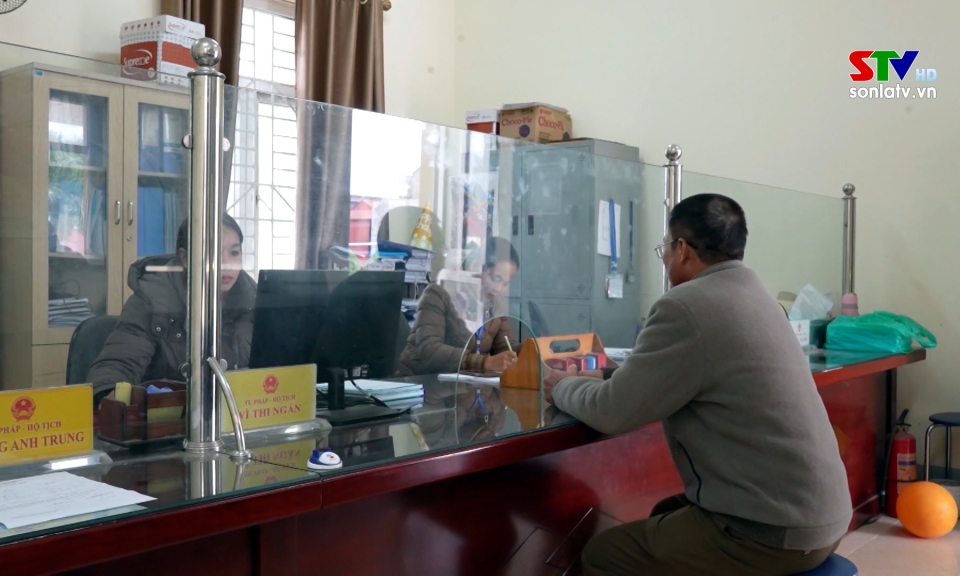Experts say that adjusting family deductions only once every 5-7 years puts workers at a disadvantage, so "it needs to be revised next year to take effect from the beginning of 2026."
Ms. Hoa is one of more than 26 million salaried workers who pay personal income tax, as of the end of 2023. According to regulations, they are deducted for social insurance, health insurance, unemployment insurance and family allowances... the remaining amount is taxable income.
Personal deduction of 11 million VND per month maintained from 2020, determined by the tax authority as "the spending level to meet the minimum living needs of a person". The deduction for dependents is 4.4 million VND.
For salaried taxpayers like Ms. Hoa, the family deduction is the basis for determining personal taxable income. However, the taxable starting point and family deduction - the basis for calculating income tax - have only changed twice in the past 16 years. The most recent adjustment was made by the authorities in July 2020, more than 4 years ago, while people's income, spending, prices and inflation have increased every year.
"The Personal Income Tax Law needs to be amended in 2025 to take effect from early 2026," said Dr. Nguyen Quoc Viet, Deputy Director of the Vietnam Institute for Economic and Policy Research (VEPR, Vietnam National University, Hanoi), adding that the operator "should not be rigid in following the roadmap of submitting it to the National Assembly at the end of 2025 and passing it in mid-2026."
If 2007 is taken as the base year - the time when the Personal Income Tax Law was enacted, people's spending and income have increased many times compared to the growth rate of family deductions. Specifically, in 2008, the time the Personal Income Tax Law took effect, each person spent an average of about 792,000 VND.
In 2022, this number will increase 3.5 times to nearly 2.8 million, according to a survey by the General Statistics Office (GSO) with nearly 47,000 households in communes and wards representing the whole country. While the spending level of each person is 4-5 times higher than in 2008, the minimum wage has increased 6-7 times, but the family deduction is less than three times.
However, according to the survey VnExpress conducted with more than 23,900 readers with an average income of 22 million VND per month, taxpayers spend more than 10 million VND on themselves but they spend at least 7 million VND to support a dependent. This level accounts for 70% of personal expenses, larger than the 40% rate determined by the Ministry of Finance.
The size of the economy is 430 billion USD, as of the end of 2023. The average income per capita is nearly 102 million VND per person per year, more than 7.5 times higher than in 2007. The prices of essential goods and services also increase steadily every year, many types "adjust faster than income". For example, according to the General Statistics Office, education increased by 17%, food increased by 27%, gasoline prices increased by 105% compared to 2020.
In this round of consultation on law amendments, the Ministry of Finance proposed to study the options. Government regulate family deduction levels. This makes policies flexible, suitable for reality and creates consensus from the people.
According to Mr. Nguyen Quoc Viet, family deductions must be based on the actual living standards of each region, and can be based on the regional minimum wage. Suppose the family deduction is 4 times the regional minimum wage. The minimum wage in Ho Chi Minh City is 4.96 million VND, so the family deduction is about 19.84 million VND, instead of 11 million VND per month as at present.
Regarding the family deduction based on the regional minimum wage, according to lawyer Nguyen Duc Nghia, Deputy Director of the Center for Supporting Small and Medium Enterprises (Ho Chi Minh City Business Association), the Government will not need to adjust it every year. Because the salary is set annually based on the agreement between representatives of workers, employers and business associations.
According to lawyer Truong Thanh Duc, Director of ANVI Law Firm, the family deduction level should be adjusted accordingly to the increase and decrease of CPI data announced by the General Statistics Office at the end of the year. "Such a regulation will not be outdated or disadvantageous to taxpayers," he said.
Family deduction is the amount of expenses to ensure the minimum living needs of taxpayers and their dependents (parents, children). This amount is adjusted when the CPI fluctuates by more than 20% compared to the time the law took effect - 2008. To ensure that family deductions are not out of sync with people's actual spending and salary, lawyer Nguyen Van Duoc, member of the Executive Committee of the Vietnam Tax Consultants Association, said that the Government should adjust when the CPI fluctuates by 5-10%.
For dependents, lawyer Nghia suggested that the deduction threshold should be equal to 50% of the taxpayer's level, higher than the current rate of 40%. Correspondingly, this level is about VND9.92 million per month, instead of the current VND4.4 million.
In addition, experts also recommend not counting reasonable expenses such as medical expenses, education expenses or interest on mortgage loans... into taxable income. Lawyer Nguyen Van Duoc, member of the Executive Committee of the Vietnam Tax Consulting Association, commented that these are essential expenses, accounting for a large proportion of households' spending structure. "These expenses have also increased sharply, but are not deducted before calculating taxes, which is a shortcoming that needs to be corrected," he said.
| Tax level | Taxable income (million VND) | Tax rate (%) |
| 1 | Up to 5 | 5 |
| 2 | Over 5-10 | 10 |
| 3 | Over 10-18 | 15 |
| 4 | Over 18-32 | 20 |
| 5 | Over 32-52 | 25 |
| 6 | Over 52-80 | 30 |
| 7 | Over 80 | 35 |
In addition to family deductions, The thick tax schedule and the accumulation of tax at the first income steps are also disadvantages. need to change, according to VEPR Deputy Director Nguyen Quoc Viet.
The progressive tax rate for salaried employees currently consists of 7 levels, with tax rates ranging from 5% to 35%. Mr. Viet proposed reducing it to 5 levels and widening the gap between tax rates.
More specifically, ANVI Law Firm Director Truong Thanh Duc said the tax rate for level 1 should be reduced to about 1-2%; the highest level is 20%. "There is no reason for the personal income tax at level 7 to be currently 35%, almost double the corporate income tax," Duc said.
Not to mention, according to Mr. Viet, this helps taxpayers at the first level, especially young workers, have the conditions to accumulate income to invest in improving their own capacity and stabilizing their lives.
"This is a necessary change in the context of increasingly expensive housing prices and service costs directly related to people's lives in big cities," Mr. Viet acknowledged.
This view is also recognized by the authorities. The Ministry of Finance is proposing to adjust the progressive tax schedule in part by reducing the number of levels and widening the income gap. This is to ensure regulation for high-income earners, making it easier to declare and pay taxes.
Source





![[Photo] Closing of the 11th Conference of the 13th Central Committee of the Communist Party of Vietnam](https://vstatic.vietnam.vn/vietnam/resource/IMAGE/2025/4/12/114b57fe6e9b4814a5ddfacf6dfe5b7f)
























![[Photo] Overcoming all difficulties, speeding up construction progress of Hoa Binh Hydropower Plant Expansion Project](https://vstatic.vietnam.vn/vietnam/resource/IMAGE/2025/4/12/bff04b551e98484c84d74c8faa3526e0)































































Comment (0)